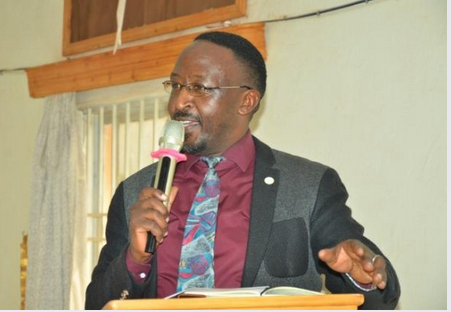By CHIMPREPORTS
Authorities in Kabale District have expressed concern over the increased number of gender-based land conflicts.
The authorities have revealed that the number of cases, particularly reported by women, at Kabale Central Police Station and the Office of the Kabale Resident District Commissioner, has steadily increased to an average of 21 per month.
Samuel Barijunaki, the Officer in charge of the Land Desk at Kabale Central Police Station, said that he registers 8 to 10 land cases every week, also revealing that the majority of the cases are reported by women.
Judith Komugisha, the Uganda Human Rights Commission (UHRC) Investigative Officer at the UHRC Kabale Office, and Sunday Ben Duncan, a retired judicial officer, attributed the increased cases to limited awareness of the public on laws governing land ownership and management.
Albert Taremwa, the Executive Director of LOSCO, says that they have embarked on sensitizing the general public, office bearers and land rights activists, among others, about the women’s land inheritance rights and property ownership, as a way of curbing the increasing domestic violence cases in the country.
During the dialogue, it was established that most of the land rights violations against women were a result of rigid cultural norms and practices. The discussants focused on Kigezi region where the customs limit ownership of land by women. For instance, the married women do not usually get equal share of land with their brothers after their parents’ death, in case there was no written will by the deceased. This is because, in the Kigezi region, women are no longer counted as part of their fathers’ family, after getting married. They are rather attached to the family of the husband.
Only the family house and sometimes a small portion of land known as “ekyemiziga” is reserved for them, in case they divorce or separate from their husbands. The rest of the property is shared among the sons of the deceased.
The other challenge was language barriers, faced by the judicial officers while presiding over land cases.
“For example one of the ways a woman can own land in Kigezi, is receiving a portion of her deceased father’s land called ‘Ekyemiziga” literally translated as “Consolatory land’,” said Counsel Duncan Sunday, who is also a retired Grade 1 Magistrate.
He argued that at times it is hard for the judicial officers to understand the source of land conflicts, since such kind of land acquisition does not usually involve documentary evidence, and there are limited means of interpreting such kind of land acquisition in accordance with the laws governing land management.
The dialogue also established that there was an increase in the number of widows facing land grabbing and evictions by their in-laws especially when their husbands die without making wills. Most of the affected widows were those cohabitating.
They expressed their concern during a human rights dialogue at Kirigime Guest House in Kabale Municipality, organised by Local Sustainable Communities Organization (LOSCO), a human rights advocacy organization, in partnership with Uganda Community Based Association for Women and Children’s Welfare (UCOBAC) and Stand for Her Land Campaign (S4HL).
Ronald Bakak Kabale, Deputy Resident District Commissioner, noted that his office receives at least 21 land-related complaints per month and women were the most affected.
He noted that the conflicts breaking families with children also affected, since the warring parties spend most of their time in courts of law at the Police.







Discussion about this post